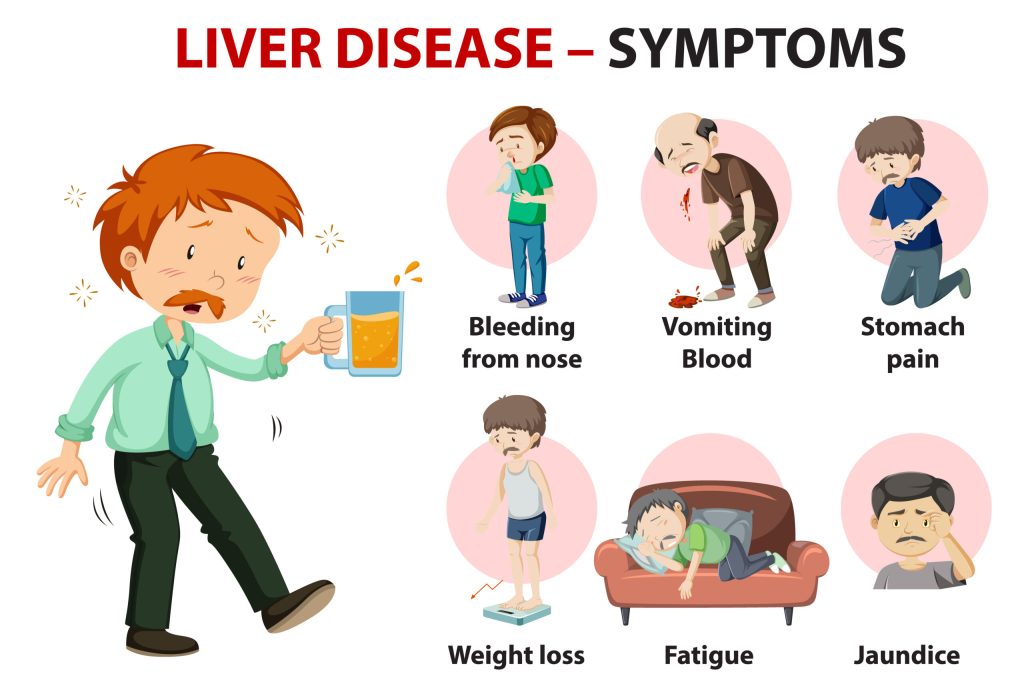Early Warnings of Liver Disease
Recognizing the early signs of liver disease can help you detect and treat the condition in time, preventing serious complications. The liver is a vital organ in the body with functions such as detoxification, bile production, and energy storage. When the liver is affected, several symptoms may appear.
1. Jaundice (yellowing of the skin, eyes, or nails)
The skin and eyes turn yellow due to the buildup of bilirubin—a substance produced by the liver when breaking down red blood cells. If the liver is not functioning properly, bilirubin is not processed correctly, leading to jaundice. This is a clear sign of liver failure or hepatitis. Jaundice may appear when the liver is inflamed or there is a bile duct obstruction.
2. Prolonged fatigue
When the liver cannot effectively detoxify and metabolize energy, toxins accumulate in the body, causing feelings of fatigue and weakness, even without strenuous physical activity.
3. Pain or discomfort in the right upper abdomen
A dull ache or discomfort in the right side of the abdomen, just below the ribcage, can occur. When the liver becomes swollen due to inflammation or damage, the surrounding area may feel tight, causing pain or discomfort.
4. Abdominal swelling (ascites)
The abdomen enlarges abnormally and swells due to the accumulation of fluid in the abdominal cavity. This may be accompanied by a feeling of tightness or pain. Ascites occurs when the liver becomes fibrotic and cannot regulate fluid levels in the body, leading to fluid buildup in the abdomen.
5. Itchy skin
When liver function declines, waste products and bile are not properly excreted from the body, causing them to accumulate in the blood and leading to itching. Severe itching, especially at night. The itching sensation is often not accompanied by rashes or redness.
6. Dark urine and pale stools
This condition occurs when the liver is unable to process bilirubin effectively. Bilirubin buildup in the blood causes dark urine, while pale stools are due to a lack of bile from the liver.
7. Unexplained weight loss
When the liver is damaged, metabolic processes are affected, leading to rapid weight loss without any changes in diet or exercise habits.
8. Bleeding or bruising
The liver produces proteins necessary for blood clotting. When liver function is impaired, the production of these proteins is affected, leading to bleeding and easy bruising.
9. Swelling in the hands and feet (peripheral edema)
When the liver cannot regulate fluid levels in the body, excess fluid can accumulate in the limbs, causing swelling.
10. Unpleasant breath odor
When the liver is damaged and cannot process toxins effectively, compounds like dimethyl sulfide accumulate in the blood and are released through the breath.
Symptoms such as jaundice, prolonged fatigue, and pain in the right upper abdomen are early warning signs of liver problems. If you experience these symptoms, liver function tests are crucial. Early detection and treatment can help protect the liver and maintain overall health.


